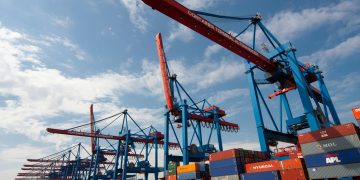The prospect of former U.S. President Donald Trump returning to the White House and implementing heavy tariffs is creating political and economic uncertainty in neighboring countries.
In Canada, Deputy Prime Minister Chrystia Freeland recently resigned, citing differences with Prime Minister Justin Trudeau over how to address the potential economic challenges posed by Trump’s tariff policy. In her resignation letter, Freeland expressed concern about the incoming U.S. administration’s aggressive economic nationalism, including the threat of 25% tariffs, and its potential to create economic instability. She emphasized the need for Canada to prepare for these challenges by maintaining fiscal reserves to counter the expected impact of a possible tariff war.
Freeland also warned that the U.S. tariff policy could create uncertainty in global markets, potentially discouraging investment outside the U.S. and raising questions for international suppliers.
Meanwhile, Trump has continued to advocate for a policy focused on strengthening U.S. economic power, including proposals for U.S. subsidies for Canada and Mexico, as well as urging foreign automotive manufacturers to build plants in the U.S. While the focus has been on North American trade, the European Union is taking proactive steps to navigate the potential fallout from any trade tensions.
In a move that coincided with Freeland’s warning, the EU entered into a partnership with the Mercosur trade bloc in Latin America. The deal, once ratified, will be one of the EU’s largest trade agreements to date, benefiting Mercosur’s five permanent members—Argentina, Brazil, Bolivia, Paraguay, and Uruguay—along with several associate states including Chile, Colombia, and Peru, and potentially Mexico and New Zealand.
The agreement, which has been in negotiation for over 25 years, is seen as a strategic response to growing concerns about protectionist trade policies. European Commission President Ursula von der Leyen stated that the deal represents a clear response to rising isolationist trends. It is expected that the agreement could save EU businesses approximately €4 billion annually in export duties.
Despite some opposition, particularly from France, the EU is focused on ensuring access to South American markets, which are seen as an important outlet for European manufacturers. Experts suggest that the EU’s emphasis on opening new markets is also motivated by concerns over potential shifts in global trade, particularly with China. Some commentators have warned that a flood of Chinese goods could overwhelm European markets, creating a larger economic challenge than U.S. tariffs.
Anthony Gardner, former U.S. ambassador to the EU during Trump’s first term, noted that the expansion of EU-South America trade could offer European manufacturers an alternative as they navigate a complex global trade environment. By fostering closer ties with South America, the EU hopes to bolster its economic position amid potential disruptions from both U.S. and Chinese trade policies.
Explore comprehensive supply chain news at The Supply Chain Report. Those interested in international trade can visit ADAMftd.com for free tools.
#TrumpTariffThreat #PoliticalUncertainty #EconomicNationalism #USCanadaTrade #EUMercosurDeal #GlobalTradeShifts #ProtectionistPolicies















